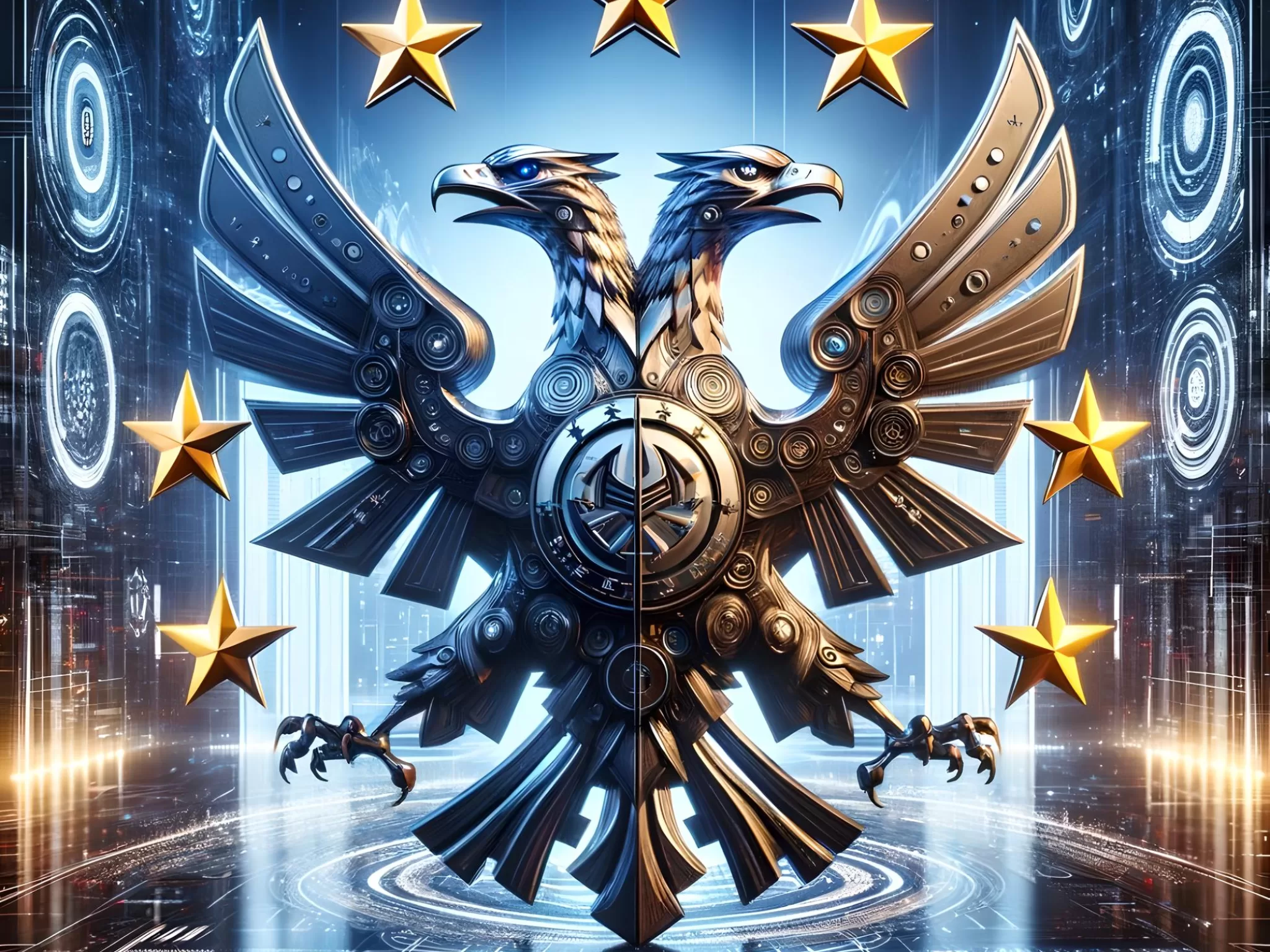We do not wish a Europe of nations dear to the ‘balkanisers’ of the extreme right, a sort of Harlequin cloak over cowardly clothes.
This Europe of nations is nothing but the momentary and precarious sum of rancours and weaknesses. We all know that the sum of weaknesses equals zero or virtually zero. The petty narrow nationalisms cancel one another, as algebraic values of opposite signs cancel each other. The petty ‘suppressed’ nationalisms derive in general a semblance of vigour only from the hatred of a neighbour or the memory of it. This is nonsense; it is a formal contradiction to hope to derive a positive force from ossified and distrustful particularisms.
For us the fatherland is a FUTURE in common much more than a past in common. The customary fatherland: Belgium, the fatherland of memory: Germany of 1964, the fatherland of one’s heritage: France, can suit only fatigued people possessed of conservative wishful thinking.
We wish for a fatherland of expansion and not a fatherland of veneration. Such will be our European fatherland.
Consequently, we condemn the narrow and mean nationalisms that maintain the divisions between citizens of the European nation. These nationalisms should be sublimated and serve as a springboard for the greater and finer conception of the great European nation. The love of the fatherland should grow with the love for Europe.
Faced with the Russian and American nationalisms one should create a European nationalism.
We despise the paralytic patriotism of cemeteries, the vain patriotism of the wearers of decorations and trinkets. We do not count merely on the spirits of Joan of Arc — or of Bismarck — to save Europe. We count solely on ourselves to do that. But we are aware of the value of tradition enriched by a lucid will directed towards the future.
Reduced to the state of the survival of the past, the fatherland is nothing more than a trifle. The only true fatherland is a fatherland that is in the process of becoming.
Europe should be unitarian: federal Europe or a Europe of nations are conceptions whose inaccuracy and complication hardly hide the lack of sincerity or senility of those who defend them and disguise their ulterior motive and their schemes. However, Europe could pass through a very brief intermediary stage of federalism. Federal Europe would be the transition between the Europe of nations — which is the present pseudo-Europe — and the unitarian Europe, which will be the Europe of Europeans, that is to say, the Europe of all the people of Europe.
Our Nationalism: a Community of Destiny
When men, peoples, have arrived at almost identical levels of maturity, when a culture is common to them, when the geography makes immediate neighbours of them and the same dangers and the same enemies threaten them, the conditions are given to create a nation.
For us, nationalism is the identity of destiny wished for in light of a great common plan.
We are opposed to the DIVIDERS constituted by the nationalists of fragmentation, the provincialists, the secessionists. The Breton, Wallon, Basque or Sicilian autonomists are at most, from the perspective of history, colourful and amusing folklorists. No real political thought animates them; they are childish romantics. These secessionists go against the human adventure. Their explanations barely hide inferiority complexes or, at best, a total lack of culture.
At present, in France, people who resist or oppose the unification of Europe belong exactly to the same type of men as those who refused the creative centralising work of the Capetians.1
We are likewise opposed to the CONSERVATIVES, to the adherents of the ossified nationalism, which exhausts its argument in memories. They hold on to the nation of heritage. We do not refuse heritage; we wish to make it greater. The French, German or Italian nationalists wish to stop the march of time. It is hardly less contemptible than the senseless intention of those who wish to distort its course by calling it, wrongly, ‘historical sense’.
Other forms of nationalism not less harmful to our European design are contemptible: for example, those based on race. Europe is composed of several races — of which there are three big groups, that is, the Slav, the Germanic and the Latin-Mediterranean. This existence in the heart of Europe of a diversity of races causes us to formally and irrevocably condemn racism as a political argument. Racism within Europe should remain the affair of ethnologists.
Nationalism based on language is hardly worth more. Besides, homogeneity of race and language has always followed political unification. Blood and language alone have never engendered a great national state. It is, on the contrary, the national state which has levelled the original differences. The ‘Frenchification’ of the French provinces under the centralising power of the kings and the ‘Castilinisation’ of Spain of the 11th to 16th centuries provide eloquent examples of that. Our nationalism is therefore neither the conservation of the past nor a secession, nor racism.
Our nationalism is a future in common, and those that it will unify will be welded one to the other by an identity of historical destiny.
Unitarian Europe will be a nation realised through a revolutionary elite.
Footnotes
The Capetian dynasty, beginning with the Frankish king Hugh Capet (ca. 941–96), was responsible for the formation of France as a state — which the Capetian dynasty ruled for more than eight centuries, until 1848.







